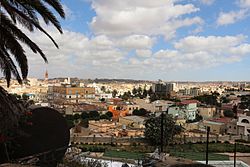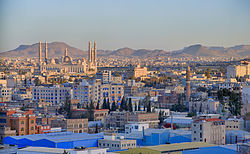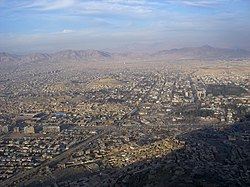











This is a list of national capitals ordered by elevation. Higher elevations typically have social, economic, and architectural effects on cities, in particular colder temperatures in winter. Low elevation cities are often seaports or are close to the sea.
Contents
- List
- Member and observer states of the United Nations
- Other states (including de facto independent states, autonomous region and dependencies)
- See also
- Notes
- References
The first country on the main list, Bolivia, is a country with multiple capitals; La Paz is the seat of the government while Sucre is the constitutional capital.
The second list below contains several states with limited recognition.
The values can vary slightly between sources due to selection of reference points. For cities indicated as zero above sea, the shore was selected as references, even if main squares or streets rarely are below two meters since that would make them sensitive to flooding at high tide or certain weather types.